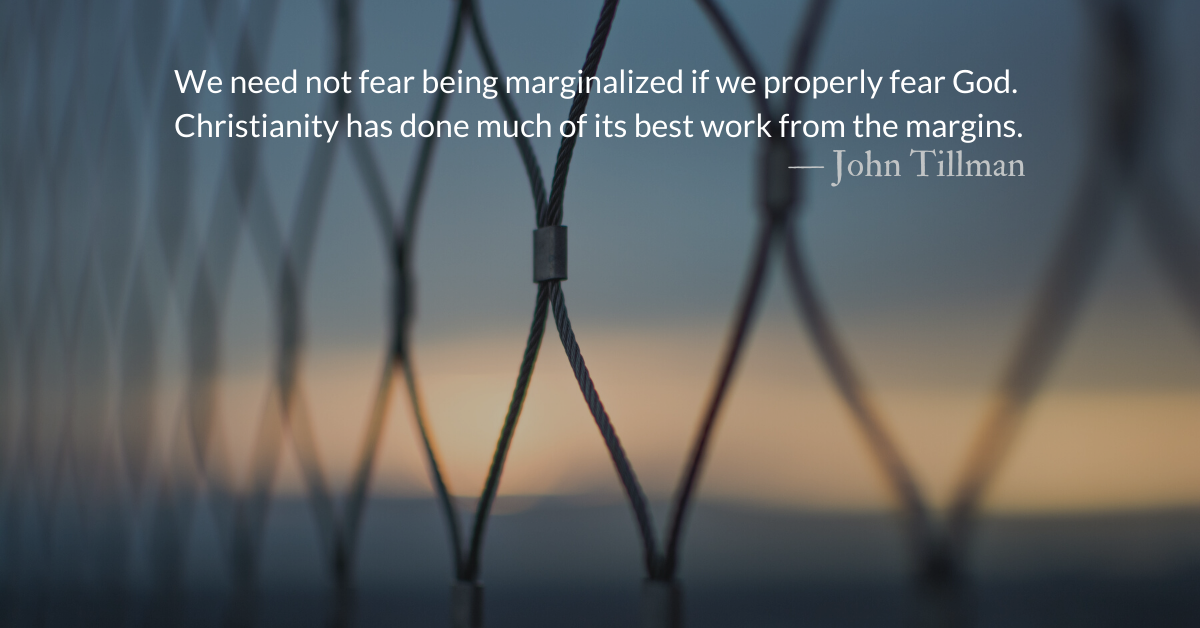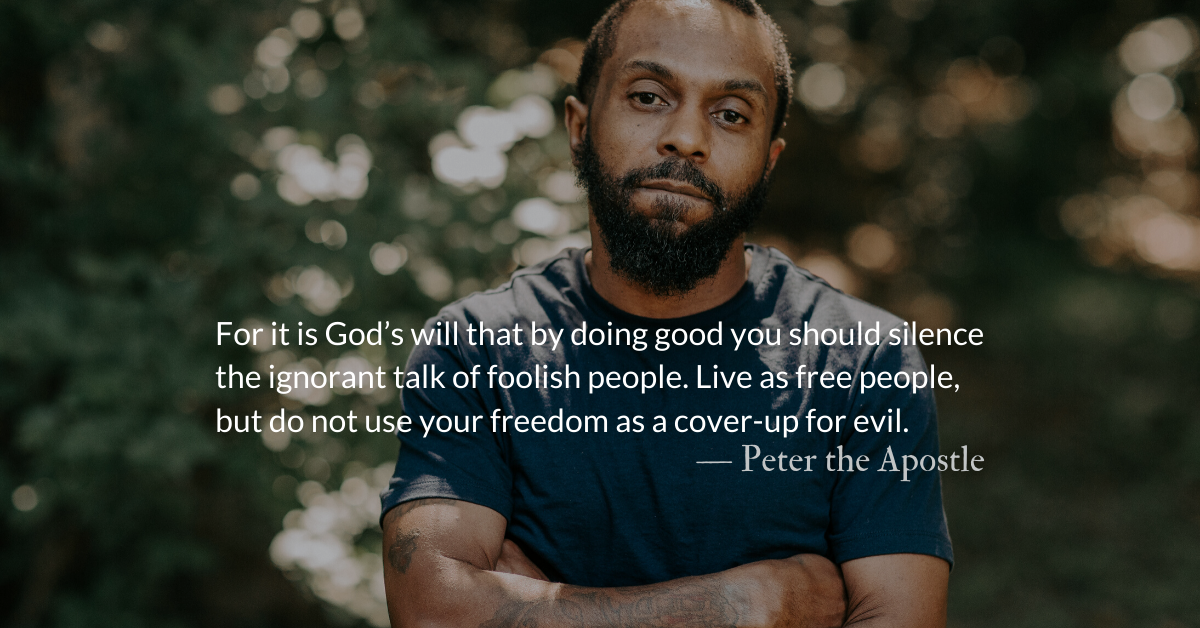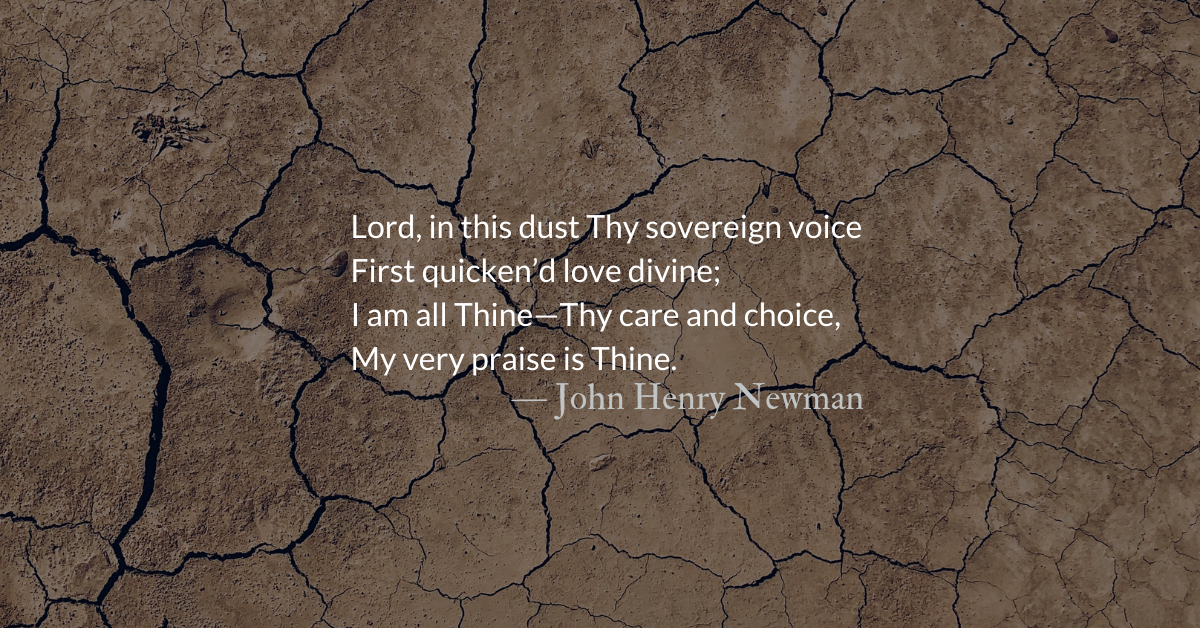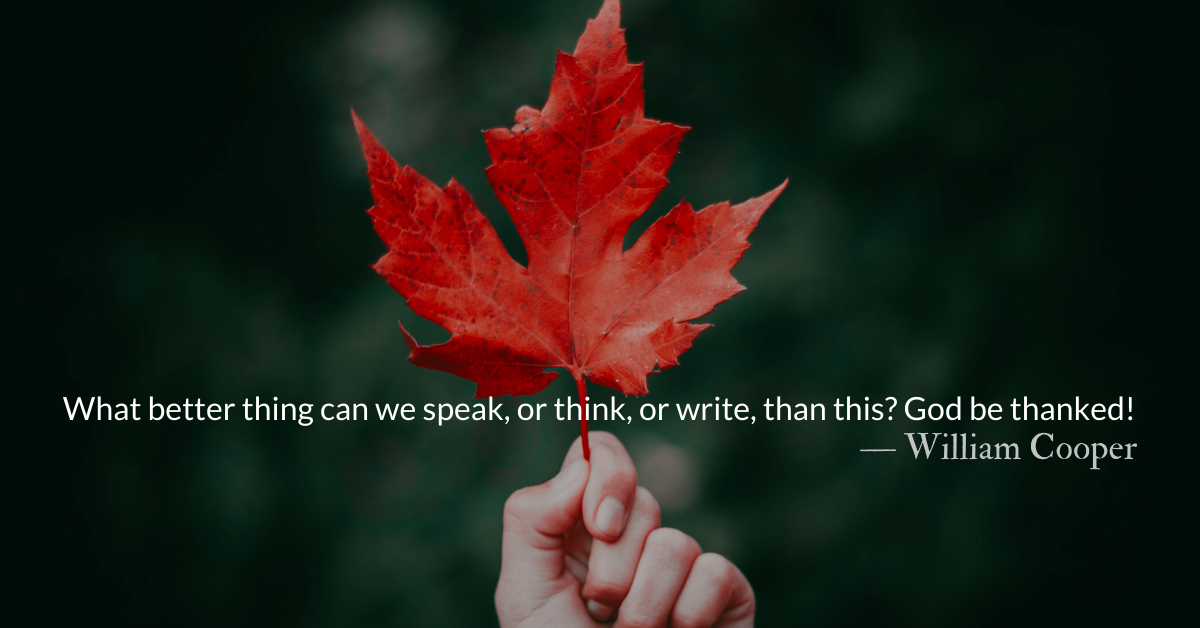Selected by reader, Jason Tilley
This reminds me of David who, dogged in the wilderness and hunted to the point of despair, still chose to let Saul live when he had the chance. He trusted in God, not his own hands. It meant he would suffer longer, but he trusted nonetheless. I think the fear of status loss in the West is dead-on. When we could be an example to the world by loving each other through our differences, we instead become petty, entitled bickerers.
Originally published, May 14, 2020, based on readings from Isaiah 13 & 1 Peter 1.
Scripture Focus: 1 Peter 1.17
Since you call on a Father who judges each person’s work impartially, live out your time as foreigners here in reverent fear.
Reflection: Wrongly Placed Fear—Readers’ Choice
By John Tillman
Christians have been taught that we are “living out our time as foreigners.” But in western culture, that was built on Christianity, it has been too easy to forget and too easy to feel at home right here in the world. But for the first time, some Christians are beginning to feel unwelcome.
This cannot be called persecution. It is at worst a loss of status.
Persecution of Christians around the world is more than murder, rape, and torture. In the countries in which Christians suffer the most, persecution is social and systemic.
It is this type of persecution—a systemic loss of legal rights and status—that scares Christians in the west more than facing down a knife attack, a rampaging truck, or a bullet.
This fear has made American Christians a paranoid and unpredictable group. Liable to believe fake news, liable to vote for candidates and support policies that two decades ago would have been inconceivable, and liable to turn on each other.
Nothing demonstrates our paranoia better than the increasingly divisive nature of religious dialogue. Progressive Christians blame conservative Christians for being dogmatic and mean-spirited. Conservatives blame progressives for abandoning central Christian teachings.
This is how people act when they are living in fear. But this is not the reverent fear of the Lord that Peter speaks of. That reverence is born out of love and leads to loving one another deeply, from the heart.
We live in fear that the Lord will let us suffer rather than rejoicing in that suffering as Peter instructs. We are living in fear that soon we will be considered the extremists—cast out from society.
The believers Peter was writing to were the losers and outcasts. They had literally been scattered from their homeland and cast out to the margins.
Christian thought has always been extremist thought. It is a revolutionary rejection of the world’s power structure. Jesus was crucified for extremist thought. It was Christian extremist thought that brought down slavery.
We need not fear being marginalized if we properly fear God. Christianity has done much of its best work from the margins.
It was from the margins that first-century Christians won more than converts, they won the culture. Not by winning court cases or electing the right officials, but by demonstrating the extremity of God’s love that comes from the Gospel.
May God give us grace to follow their example.
Divine Hours Prayer: The Call to Prayer
Let my mouth be full of your praise and your glory all the day long. — Psalm 71.8
– Divine Hours prayers from The Divine Hours: Prayers for Summertime by Phyllis Tickle
Today’s Readings
Ezekiel 3 (Listen – 4:41)
Psalm 39 (Listen – 1:49)
Read more about Where Martyrdom Begins Part 2
Giving up your life for others, doesn’t always mean that you die.
Read more about Supporting our Work
The Park Forum strives to provide short, smart, engaging, biblical content to people across the world for free with no ads. Gifts to The Park Forum support this mission.











